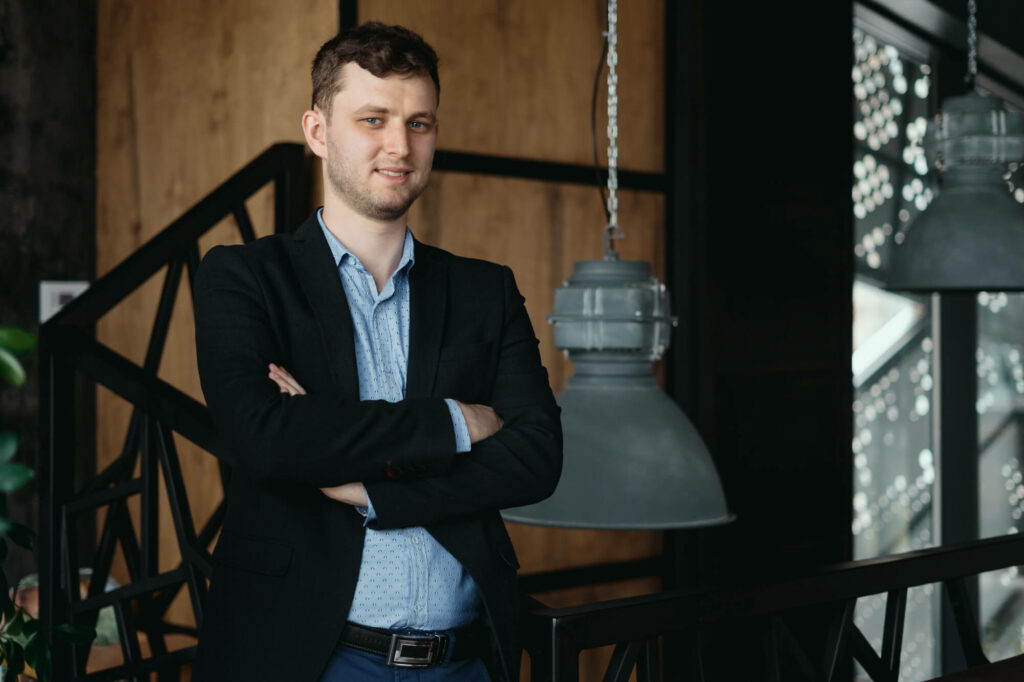We may have encountered the term “founder,” particularly in the startup industry. A startup’s founder is irreplaceable and an indispensable component.
However, are you aware of who the founder is? What is their role in the organization? What is the answer?
Also read: Advantages of the Transformational Leadership Style in Startups
What is Startup Founder?
In the context of companies and startups, a founder is the person who initiates the business concept of a company or startup.
Numerous renowned founders, including Bill Gates and Paul Allen, successfully leave their mark on the world. Both are the founders of Microsoft, a globally renowned technology company. Nadiem Makarim is an example of a successful Indonesian startup founder.
In addition to the term “founder,” we may have heard the terms “owner” and “chief executive officer” when discussing the startup industry. Do the company’s founder, owner, and chief executive officer hold the same position? Or, can we assign these three roles to a single individual?
Each of these three positions has distinct duties and responsibilities. The founder is the person who starts the business from scratch. The CEO, on the other hand, is the person in charge of the business operations of the company.
Also read: Lean Startup Method: Purpose, and The Basic Principles
The CEO’s responsibilities extend beyond overseeing the company’s operations. But also leads, designs, and implements the company’s business strategy. As the public face of the company, the CEO is in charge of telling higher-ups and the general public about the policies of the company.
CEOs play a crucial role in a company because they are responsible for making decisions. In a smaller organization, the CEO’s role may expand to include direct involvement in business operations, finances, etc.
In contrast, the owner is the holder of the company’s stock share. The term “owners” is used to describe individual investors and investor groups. The term “owner” can also be applied to investors who have made no direct contributions to the company other than financial contributions.
In essence, a founder may also serve as the company’s owner and chief executive officer, particularly during the seed and development stages. Even if the founder sells shares of the company in the future, they will still be considered the founder.
Startup Founder’s Responsibility

Startup founder Ilustration (source: freepik).
Now that we know what a founder is, let’s look at what they do and what their responsibilities are in a startup. As the person who establishes the business, founders will face a variety of consequences. One of them is that they must oversee and participate in numerous company operations. Thus, startup founders play a variety of roles, including those listed below.
1. Build a solid team
Creating a business is difficult, and no one can do it alone. The founders must invite trusted individuals to join the team. Consequently, the term “co-founder” exists. Co-founders are individuals with specialized abilities who support the founder. For example, a founder who is good with money might look for a co-founder who is good with people and has a lot of experience with that. The combination of these differences will create a strong team composition.
A good team is one that can fill each other’s roles to develop the company. Check out a more complete explanation regarding tips on building a good team in a company by downloading ASEAN’s Growth & Scale Talent Playbook.
2. Create the company’s vision
Without a clear vision, businesses cannot reach their full growth potential. At the beginning of a company’s infancy, its founders should have a well-defined vision.
Not only goals but also the means to achieve them. Vision will eventually become the company’s strategy.
3. Develop the company’s business plan
The founders must also design and develop the business plan for the company. Early on, a solid business plan is required so that employees can gain a better understanding of the company and how to achieve its objectives.
When the business is up and running and has begun to expand, the founder can hire new personnel to run the company and ensure that everything is proceeding according to the business plan.
Also read: Important Positions in Startup Organizational Structure
4. Funding for the early stage
Funding is one of the most essential responsibilities founders must bear. Without adequate funding, no startup can grow past the early stages.
Founders must understand how to secure funding for their company. Several methods are available, including loans, venture capital, and personal funds.
5. Establish the directional board
Initially, founders must assemble a board of directors to help establish the company. Once this has been accomplished, the founders will only need to monitor the board of directors’ relationship with the company.
In addition to the roles listed above, founders must also manage the company’s finances if they have not hired a Chief Financial Officer (CFO).
Also read: 7 Ways on How to Improve Employees Quality of Work
List of Famous Startup Founders in Indonesia and South East Asia

Startup founder Ilustration (source: freepik).
In Indonesia and Southeast Asia, there are thousands of startups. Each has a distinct history. Some individuals reached the unicorn or even decacorn stage. But numerous startups continue to struggle to secure funding and expand their operations.
Behind each of these fascinating startups are founders who have struggled to build their businesses from the ground up. Here are some examples!
1. James Prananto – Kopi Kenangan
Behind the success of Kopi Kenangan is James Prananto. James established Kopi Kenangan in 2017 and achieved unicorn status by December 2021. Remember that Kopi Kenangan is the first food and beverage retail company in Southeast Asia to reach the unicorn stage.
Kopi Kenangan became a unicorn after their C Series funding brought in 96 million USD, which is about 1.3 trillion Rupiah. By altering the market’s mindset, James Prananto implements a disruptive strategy.
The business model that Kopi Kenangan used was “grab-and-go,” but they kept their prices lower than the premium coffee chain. Likewise, their expansion was rapid.
Before starting Kopi Kenangan, James Prananto was in charge of marketing at PT MNC Aladin Indonesia (MisterAladin.com) and was the Assistant Head of Investor Relations and Corporate Finance at PT Media Nusantara Citra Tbk.
Now, James Prananto is focused on the 2023 IPO target for Kopi Kenangan.
2. Chris Halim & Raena Halim – Style Theory
Style Theory is a company that provides rental services for clothing. Chris Halim and Raena Halim, a Singaporean couple, are the company’s founders.
Style Theory was started in 2016 because its founders were unhappy with the fast fashion business. They desire to offer a rental service for high-fashion items. The user can rent brand-name clothing or handbags for a month and choose what they want.
Style Theory sells many designer brands, such as Louis Vuitton, Gucci, and Yves Saint Laurent. Chris and Raena ensure that all the items they sell are authentic.
Before founding Style Theory, both Chris and Raena held positions in the corporate sector. Chris was employed by Bain & Company, while Raena was employed by Goldman Sachs.
Also read: 10 Skills That Every Startup Founder Must Have
3. Akshay Garg – Kredivo
The next speaker is Akshay Garg, an Indian founder of Kredivo. Kredivo is a company that offers a smartphone application for a digital credit card. Their users have access to a variety of services, including loans for e-commerce shopping. The user can return the borrowed funds within 30 days. In recent years, financing startups such as Kredivo has grown in popularity.
Similar pay-later services are offered by startups in other fields to accommodate their users. Kredivo is one of these startups that has achieved a 30% year-over-year growth rate.
According to Akshay Garg, the secret to these positive changes is a solid team with strong chemistry. Since Akshay started Kredivo in 2015, the company has been based on the ideas of hard work and communicating as a team.
In 2001 and 2002, Akshay worked as a business analyst for Deloitte Consulting. From 2003 to 2004, he was a principal research analyst for the International Labour Organization. In 2006, Akshay established KOMLI Media. Before Axiata bought KOMLI Media in 2015, he did a good job of making it the biggest company for marketing technology in Southeast Asia. In Indonesia, Akshay founded FinAccel in the same year.
4. Turochas “T” Fuad – Pace
Turochas Fuad, also known as “T,” is the founder of Pace, which is comparable to Kredivo. Pace’s main office is in Singapore. The company focuses on the Southeast Asian market and is growing all over Asia.
Pace was founded in 2021, and in November they successfully raised $40,000,000 USD or 595,500,000,000,000 IDR via series A funding. With this money, T planned to get up to 25 times as many users per year.
T started three companies before he started Pace: WUF Networks Inc., which Yahoo bought in 2005; travelmob; and spacemob.
5. Indra Gunawan & Antonius Bong – Bobobox
Bobobox is a company that provides capsule hotels with internet-connected room-connecting technology.
Indra Gunawan and Antonius Bong started Bobobox with the help of a team from Bandung. In 2018, Bobobox was founded and successfully secured funding. Bobobox received $11.5 million in Series A funding in 2020. Now, Bobobox has multiple locations in Indonesia.
We have learned a great deal about startup founders, their role in the company, and some of the most successful startup founders in Indonesia and Southeast Asia. In the early and later stages of a company’s development, the founder’s role is crucial.
If the founder didn’t have a clear vision and mission, the team wouldn’t know where the company was going or what its goals were.



